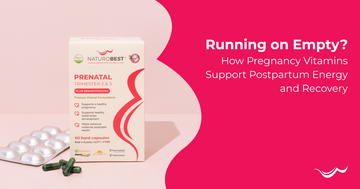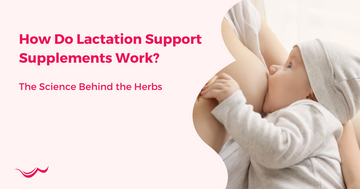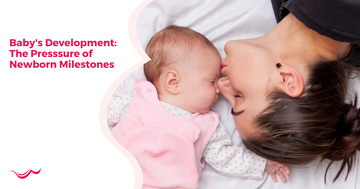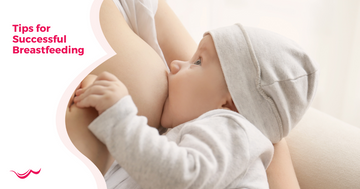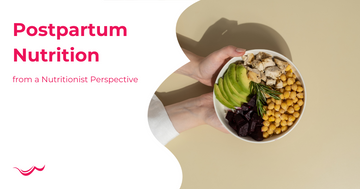
Can your diet after giving birth affect your mental health?
New mums receive plenty of advice, information, and support for the nine months of pregnancy. Then after birth, well meaning visitors can offer plenty of advice and hugs with baby rather than bringing what every new mum craves, nutritious food. This means the postpartum period often leaves new mothers feeling unsupported and overwhelmed.
Postpartum depression is common in women after giving birth and can happen at any time. This shouldn't be confused with the normal hormonal drop that can result in women feeling emotional three days after birth.
Pregnancy, childbirth, becoming a mother, and breastfeeding can be physically and mentally demanding. They can also cause nutritional deficiencies, which can contribute to the development of postpartum depression.
Eating well during pregnancy is important for both baby and mum. But it's also crucial to focus on nutrition after giving birth to help with recovery and mental health. Did you know that many nutrients actually play a role in the synthesis of our neurotransmitters? This means that the foods you eat can contribute to postpartum moods and the baby blues.
What is the importance of a postpartum diet?
After giving birth, your nutritional requirements increase to assist with recovery and produce breast milk, if you're breastfeeding. During this time, your body requires various essential nutrients for different functions. These help to aid in recovery, wound healing, supporting the immune system, and producing neurotransmitters.
As your body focuses on healing, it will prioritise using these nutrients for recovery rather than making neurotransmitters. Having enough nutrients to support your recovery and optimise mental health is an essential part of your postpartum care.
Important Nutrients for your Postpartum Diet:
Optimal vitamin D levels during and after pregnancy can help prevent postpartum depression, according to recent research. The brain has vitamin D receptors located throughout it, and a deficiency can affect the neurotransmitters associated with depression.
Other studies have shown correlation between vitamin D and depression. A study from The Netherlands reported that as vitamin D levels decreased, depressive symptoms increased.
Folate, vitamin B12, and vitamin B6 are important factors in homocysteine metabolism. Homocysteine is a protein involved in neurotransmitter production. High levels of homocysteine and low folate can increase the risk of postpartum depression. This is because they affect the production of neurotransmitters: serotonin, dopamine, and norepinephrine.
Omega 3 fatty acids EPA and DHA in a mother's diet can affect depression by changing brain cell structure. Changes in the structure of these membranes can influence the levels of serotonin in the brain.
What are some tips for a good postpartum recovery?
Top Tips from NaturoBest’s Nutritionists:
Avoid a high-sugar diet to avoid the blood sugar rollercoaster:
Eating protein and omega-3 fatty acids can help improve mental health after giving birth by stabilising blood sugar levels. Eating carbs alone can cause blood sugar levels to rise and then drop. The significant drop in blood sugar can trigger a 'fight or flight' response, resulting in symptoms like anxiety. Pairing carbs with protein and fat in the same meal can help stabilise blood sugar levels.
Focus on protein:
Protein is important for balancing meals, controlling blood sugar, healing wounds, and repairing the body. The body also needs amino acids from protein to make neurotransmitters. For healthy breast milk production, a mum needs to focus on increasing her protein and good fats intake.
Omega-3s:
We’ve already mentioned how important those omega-3 fatty acids are for the postpartum period. Try to eat oily fish such as salmon, tuna, anchovies, and sardines to meet your protein and omega-3 needs. Also include plant-based sources of omega-3s like flaxseeds, chia seeds, hemp seeds, and walnuts in your meals.
Do your best!
Being a mum is hard, and even harder if you're experiencing postpartum depression or other mental health issues. Don't limit foods or food groups. Instead, aim for improvement and add nutritious options to your meals and snacks.
Here are some ideas:
Enjoy avocado on toast? Add a tablespoon of hemp seeds.
Having pasta or rice at dinner? Add a tin of wild-caught salmon or tuna for protein and omega-3s.
Don't stress about being perfect. You're already doing a lot, so there's no need to worry about what you can't do perfectly. Try to remember, that a diet high in refined carbohydrates is lacking in essential nutrients for brain health and neurotransmitter production. So to support mental health, try to eat protein and omega-3 fats with meals and snacks to stabilise blood sugar levels.
Easy Recipes for Postpartum Nutrition:
Freezer friendly egg bites
Combine your favourite vegetables such as zucchini, mushroom, onion, and capsicum. Mix them with 6-8 eggs, and add some cheese if desired. Season with salt, pepper, and herbs.
Pour into muffin tins and bake. Once baked you can store these in the freezer and reheat in the microwave for a quick snack! Or serve with wholegrain toast and avocado for a more balanced meal.
Canned wild-caught salmon on toast.
There's nothing wrong with convenience! Having tinned salmon, tuna and mackerel in your pantry will only be beneficial when you need a quick snack or a meal. You’ll be hitting your protein and omega-3 goals when you reach for these! Add to your avocado toast, salads, vegetable pasta, or eat alone as a snack with salt and pepper.
Sip on bone broth
Head to your local health food store and pick up a few jars of bone broth to store in your fridge. Bone broth is a powerhouse of nutrients and easy to digest. Keeping this available is an excellent addition to sauces, soups, stews, or as a standalone snack.
Smoothie bags pre-prepped.
Freeze a bag with banana, avocado, flaxseeds, berries, protein powder, and greens for later use. When you’re starving and need a snack – grab one, add to the blender with dairy or alternative milk and blend away!

